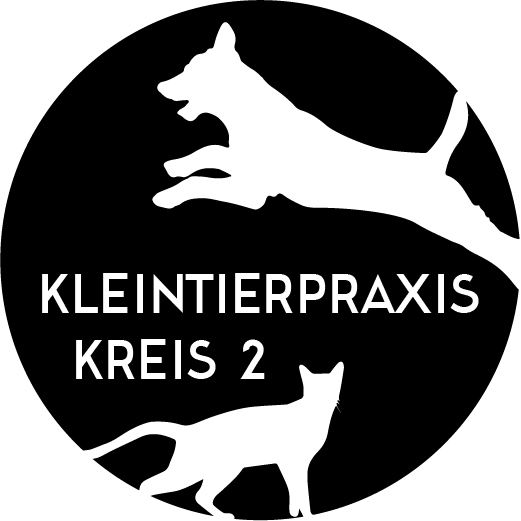IMPORT DOGS/CATS TO SWITZERLAND
We recommend that you first consult the general information from the BLV (Federal Food Safety and Veterinary Office) and the BAZG (Federal Customs and Border Security Office) and contact these offices directly if you have any questions. Please note that all information, documents, links and downloads below have been compiled for you without guarantee and we assume no liability. The timely and complete processing of an import is the responsibility of the pet owner.
1. Origin from a country that is classified as free of urban rabies or from a country with a favorable epidemic situation with regard to rabies:
All EU member states as well as Great Britain, Andorra, Faroe Islands, Gibraltar, Greenland, Iceland, Liechtenstein, Monaco, Norway are considered free of rabies , San Marino or Vatican. Please also consult the current country list "rabies" of the FSVO (Federal Food Safety and Veterinary Office, www.blv.admin.ch).
The following conditions must be met:
- Identification by means of a microchip (tattoos are accepted up to July 3rd, 2011).
- Fully completed veterinary certificate and pet passport (for countries with a favorable epidemic situation) or pet passport (countries free of urban rabies).
- Pets under the age 56 days: only when accompanied by the mother.
- Pets in the age from 8-12 weeks: accompanied by the mother or with a rabies declaration.
- Young animals under the age of 12 weeks may be imported without a rabies vaccination. However, they need a certificate completed by the (new) owner stating that they have been kept without contact with wild animals since birth. The certification requirement does not apply if the young animals are accompanied by the mother animal on which they are still dependent. Puppies up to the age of 8 weeks may only be imported if they are accompanied by their mother.
- Pets from 12-16 weeks: rabies vaccination made and rabies declaration if import less than 21 days after rabies vaccination.
- Pets over 16 weeks: valid rabies vaccination (waiting period 21 days from vaccination rabies).
!IMPORTANT! If not all points are met: report to the FSVO or cantonal veterinary office, ie all veterinarians are obliged by the canton and the federal government to inform the authorities - in our case the cantonal veterinary office in Zurich - in such a case. The further procedure, clarifications and measures are coordinated and ordered by the official offices.
2. Origin from a rabies risk country
Puppies can be legally imported at the earliest from the age of about 7 months, ie until all conditions are met.
The serum titer test for rabies antibodies remains valid as long as the subsequent rabies vaccination is within the validity period of the approved validity of the rabies vaccine. If you travel regularly to countries where there is a risk of rabies, it is recommended that you have your rabies vaccination repeated every year, even if the vaccine is valid for 3 years.
The following conditions must be met:
- Marking by microchip.
- Fully completed veterinary certificate.
- Rabies vaccination carried out (minimum age 12 weeks).
- Anti-rabies serum titer greater than 0.5IU (blood sample no earlier than 30 days after rabies vaccination).
- 3 months waiting period after blood sample (even with a titer over 0.5IU).
- Import permit from the FSVO (if the pet is imported directly by air).
!IMPORTANT! If these points are not met, all veterinarians are obliged to report to the cantonal veterinary office or the FSVO, and further action and any measures are coordinated and ordered by the official offices.
Ad. 1. & 2.: Pets may be accompanied on import by an authorized person if the keeper has previously accepted the animal abroad.
A maximum of 5 animals may be brought in at the same time. From 6 animals, registration in Traces or a permit from the BLV (Federal Food Safety and Veterinary Office) is required.
3. Import of dogs with cropped ears or tails
The import of cropped dogs into Switzerland is prohibited, as these are considered prohibited acts on animals. Detailed information on importing docked dogs can be found on the FSVO website. Exceptions may apply to holidays/holidays, short stays and when moving to Switzerland. In any case, find out more from the FSVO BEFORE entering Switzerland and apply for a special import confirmation, otherwise the dog with amputated ears and/or tail is considered illegally imported into Switzerland. Unfortunately, an import permit for docked dogs cannot be subsequently submitted and issued. In such a case, you are no longer allowed to travel across the Swiss national borders with your dog, as your dog may be refused re-importation at the border.
4. Mandatory customs clearance of pets when importing into Switzerland:
Pets must be imported via a manned border crossing and during the opening hours of the customs office in tourist traffic. The animal must be presented in person to the inspection bodies together with the forms required for import. If the value-free limit of CHF 300 is exceeded, you must pay Swiss VAT at the rate of 7.7% of the total value. The total value consists of the purchase price plus all costs and expenses up to the Swiss border (protection fees, vaccinations, veterinary costs, transport). If you cannot prove the value with invoices or receipts, or if the information is questionable, the customs staff will estimate the value of the animal. If you did not declare your animal when you first crossed the border into Switzerland, you have the option of declaring this later online using the links below report to the Federal Office of Customs and Border Security.
Kompetenzzentrum Heimtiere
Zoll West
Bielstrasse 1
3902 Brig-Glis
Telefon: +41 58 469 39 61 (Mo.-Fr. 09:00-11:00)
Links to further Information related to customs clearance (Quelle: Federal Office for Customs and Border Security FOCBS)
- Nachträgliche Veranlagung von Heimtieren - allgemeine Information
- Nachträgliche Veranlagung von Heimtieren - Meldeformular
